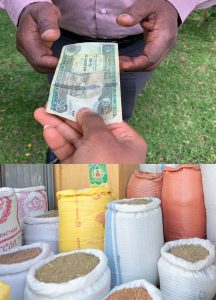ESSP Working Paper 125, by Kalle Hirvonen and John Hoddinott.
Abstract: Economists typically default to the assumption that cash is always preferable to an in-kind transfer. We extend the classic Southworth (1945) framework to predict under what conditions this assumption holds. We take the model to longitudinal household data from Ethiopia where a large-scale social safety net intervention – the Productive Safety Net Programme (PSNP) – operates. Even though most PSNP payments are paid in cash, and even though the (temporal) transaction costs associated with food payments are higher than payments received as cash, the overwhelming majority of the beneficiary households prefer their payments only or partly in food. However, these preferences are neither homogeneous nor stable. Higher food prices induce shifts in preferences towards in-kind transfers, but more food secure households and those closer to food markets and to financial services prefer cash. There is suggestive evidence that preferences for food are also driven by self-control concerns. Download the PDF.
